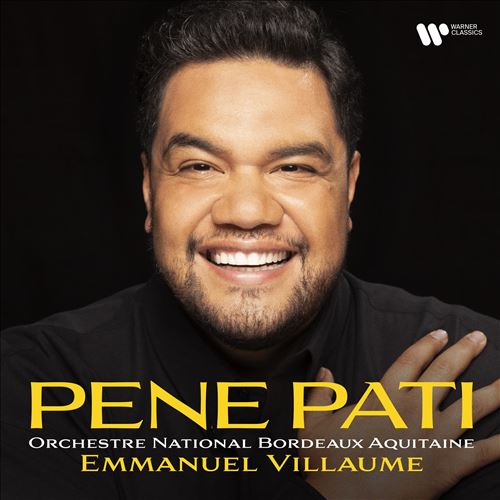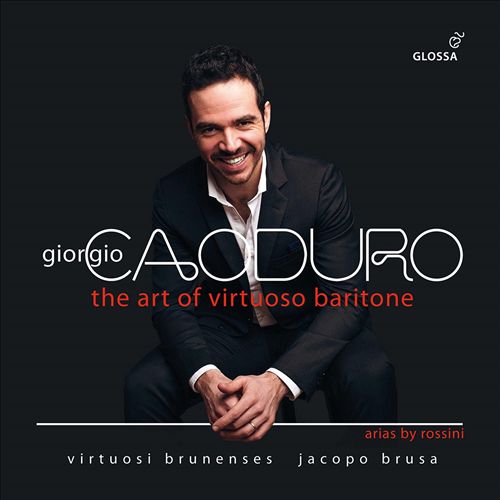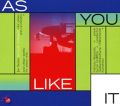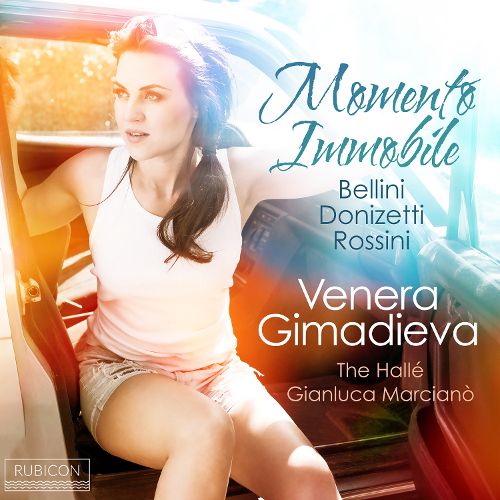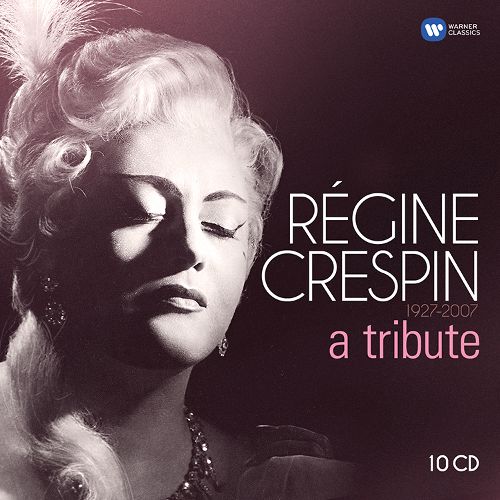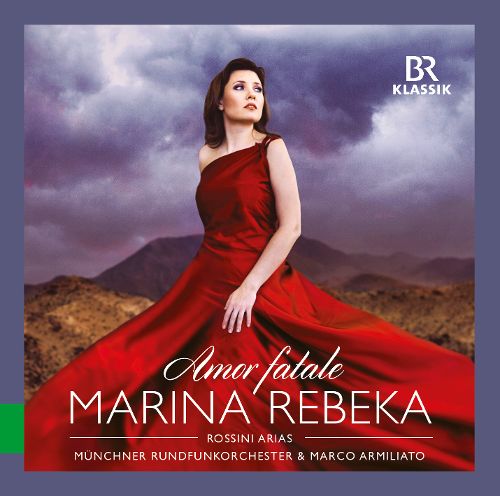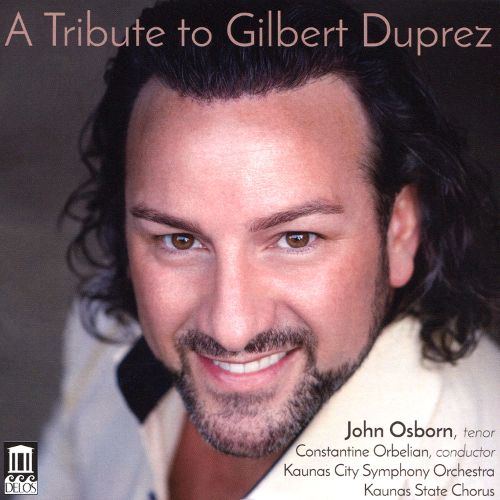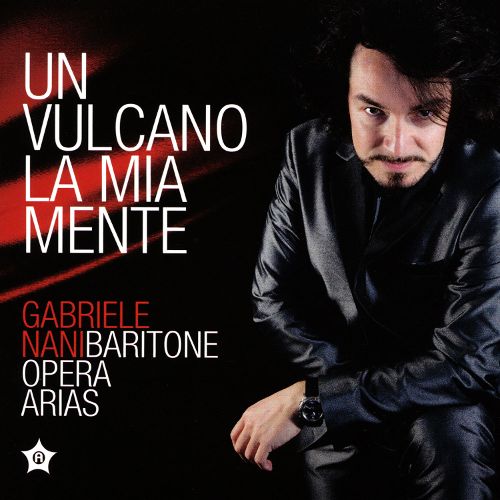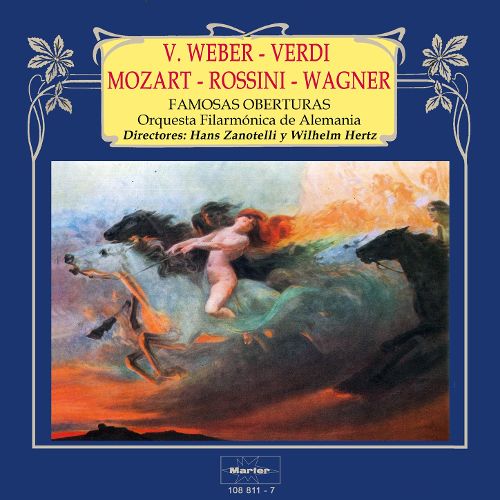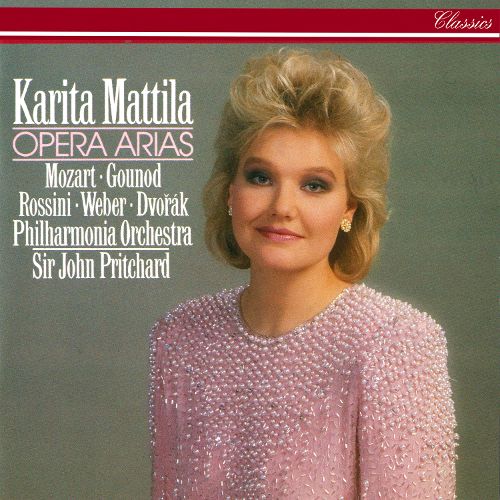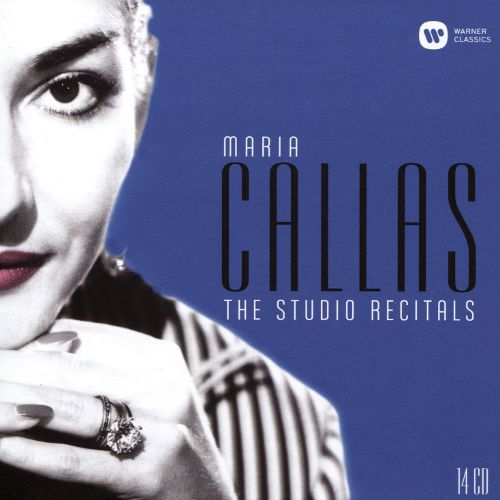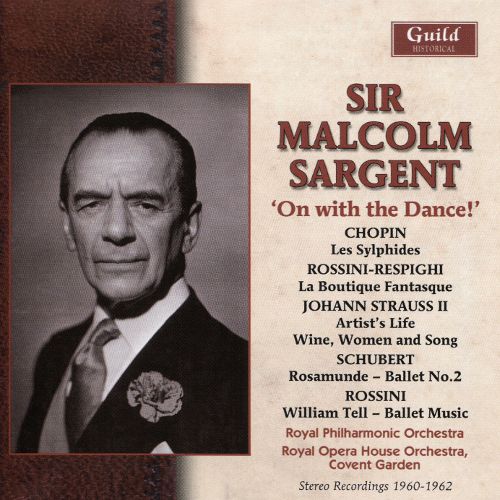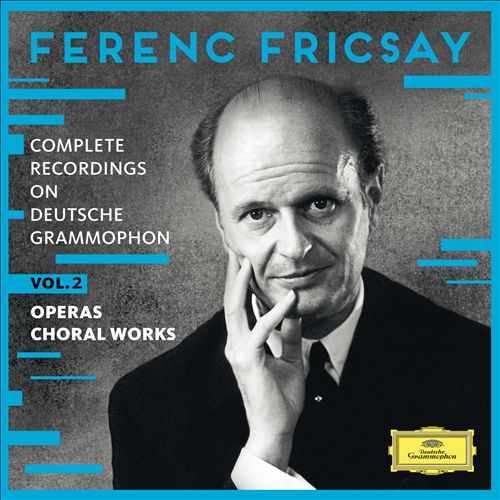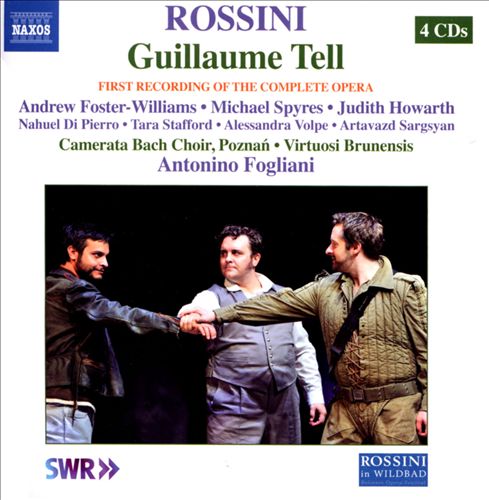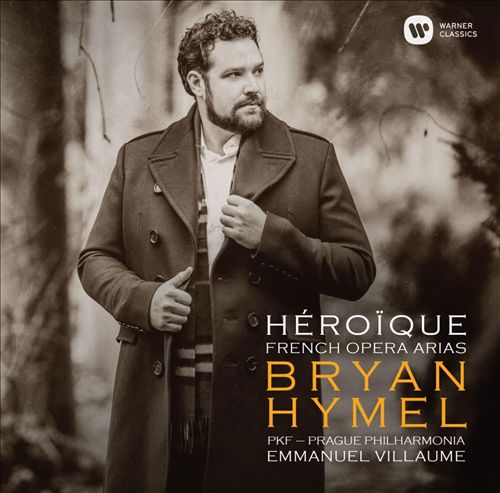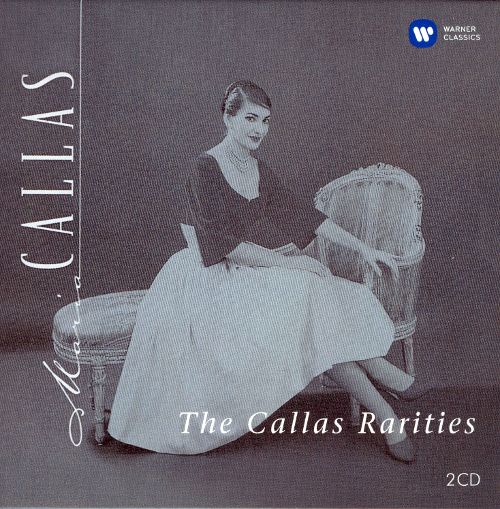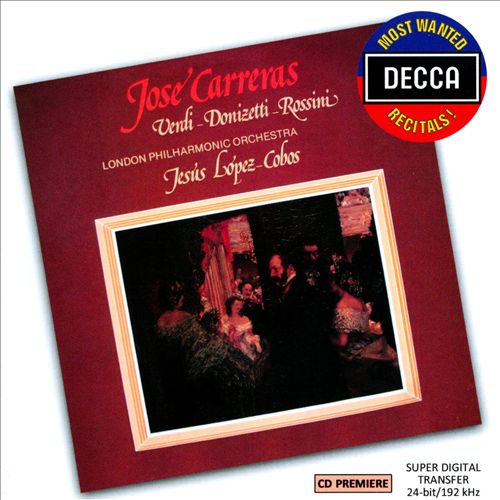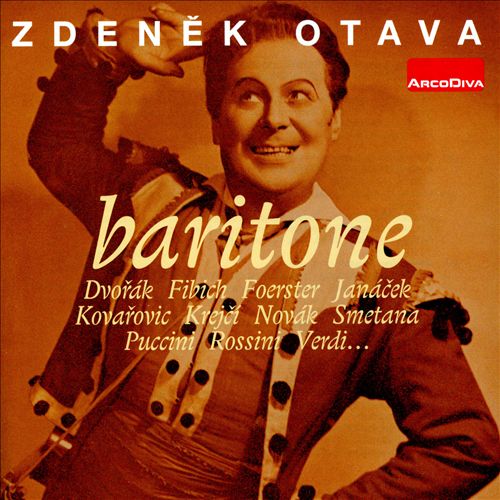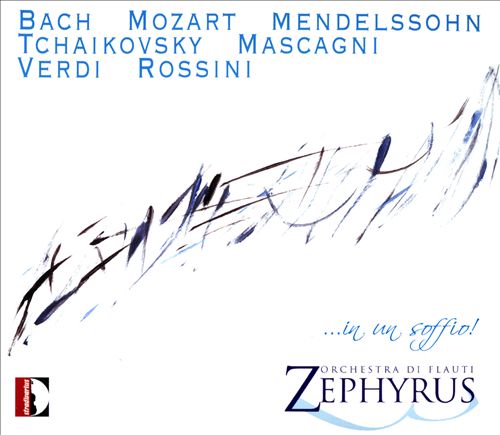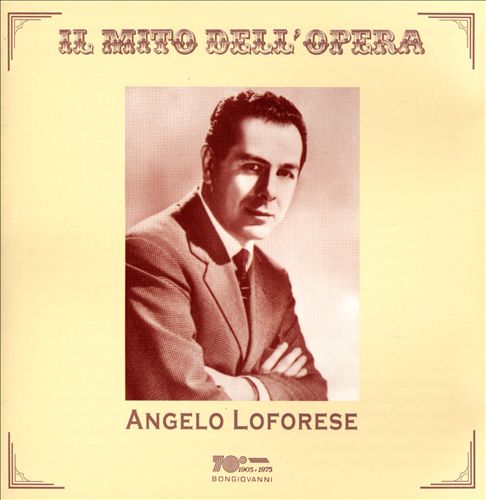Gioachino Rossini (조아키노 로시니)
Guillaume Tell
100
10,000
1,400
WORK INFO
작곡가: Gioachino Rossini (조아키노 로시니)작곡년도: 1829평균연주: 126:46악장1No. 1 Overture10:342Act 1 : No. 2a, Quel jour serein le ciel presage (È il ciel seren)4:263Act 1 : No. 2b, Accours dans ma nacelle (Il piccol legno ascendi)4:364Act 1 : No. 3a, On entend des montagnes (Oh! quale alla d'intorno)5:195Act 1 : No. 3b, Près des torrents qui grondent (Al fremer del torrente)2:146Act 1 : No. 4a, Où vas tu? (Arresta!)5:407Act 1 : No. 4b, Ah! Mathilde, idole de mon åme (Ah! Matilde, io t'amo)4:238Act 1 : No. 5, Bridal Procession4:039Act 1 : No. 6a, Ciel, qui du monde' (Ciel che del monde)1:2510Act 1 : No. 6b, Hymenée, ta journée (Cinto il crine) (Dance)4:3011Act 1 : No. 7, Pas de Six5:0312Act 1 : No. 8, Dieu de bonté (Nume opaca)3:4513Act 2 : No. 9a, Ils s'éloignent enfin (S'allontanano alfine!)5:3314Act 2 : No. 9b, 'Sombre forêt (Selva opaca)4:5215Act 2 : No. 10, 'Ma présence pour vous est peut-être un outrage? (Se il mio giunger)3:0016Act 2 : No. 11a, Quand l'Helvétie (Allor che scorre de' forti il sangue)5:3517Act 2 : No. 11b, Ses jours (Troncar suoi di)4:2018Act 2 : No. 12,. Scène de la conjurationnull19Act 3 : No. 13a, Pas de trois5:2520Act 3 : No. 13b, À nos chantsnull21Act 3 : No. 13c, Allegretto et Maestoso3:4222Act 3 : No. 14, Soliders' March5:0423Act 3 : No. 15a, Je te bénis (Ti benedico)2:2124Act 3 : No. 15b, Sois immobile (Resta immobile)3:1725Act 4 : No. 16a, Ne m'abandonne pas (Non mi lasciare)5:1926Act 4 : No. 16b, Asile héréditaire (O muto asil)4:4127Act 4 : No. 16c, Amis, amis, secondez ma venegance (Corriam, voliam)1:5628Act 4 : No. 17 Finale3:26Guillaume Tell () is an opera in four acts by Gioachino Rossini to a French libretto by Étienne de Jouy and Hippolyte Bis. Based on Friedrich Schiller's play William Tell, which drew on the William Tell legend, the opera was Rossini's last, although he lived for nearly forty more years. The overture, in four sections and featuring a depiction of a storm as well as a vivacious finale, the "March of the Swiss Soldiers," is often played. Charles Malherbe, archivist at the Paris Opéra, discovered the original orchestral score of the opera at a secondhand book seller's shop, resulting in its being acquired by the Paris Conservatoire.
It was first performed by the Paris Opéra at the Salle Le Peletier on 3 August 1829, but within three performances cuts were being made and after a year only three acts were performed. The opera's length, roughly four hours of music, and casting requirements, such as the high range required for the tenor part, have contributed to the difficulty of producing the work. When performed, the opera is often cut. Performances have been given in both French and Italian. Political concerns have also contributed to the varying fortunes of the work.From WIKIPEDIA
RELEASED ALBUMS
-
An Ode to NatureMarch 21, 2025
-
Forest MurmursMay 26, 2023
-
Eduard van Beinum: Complete Recordings on Decca & PhilipsJanuary 6, 2023
-
Rossini & Donizetti: French Bel Canto AriasOctober 7, 2022
-
Pene PatiMarch 25, 2022
-
Spatial Audio: The 3D Orchestral CollectionOctober 15, 2021
-
Booming Bass and Baritone: Best Loved Opera AriasApril 23, 2021
-
The Art of Virtuoso Baritone: Arias by RossiniMarch 19, 2021
-
As You Like ItApril 5, 2019
-
Momento ImmobileOctober 26, 2018
-
Régine Crespin: A TributeOctober 20, 2017
-
Amor FataleOctober 6, 2017
-
ÉchoSeptember 8, 2017
-
A Tribute to Gilbert DuprezSeptember 8, 2017
-
Un Volcano La Mia MenteSeptember 1, 2017
-
Famosas Oberturas: Weber, Verdi, Mozart, Rossini, WagnerApril 14, 2017
-
Opera Arias: Mozart, Gounod, Rossini, Weber, DvorákJuly 10, 2016
-
The Complete Studio RecitalsJune 17, 2016
-
Decca Sound: 55 Great Vocal RecitalsMay 20, 2016
-
Philips Classics: The Stereo YearsFebruary 19, 2016
-
Sir Malcolm Sargent: On with the Dance!February 9, 2016
-
Ferenc Fricsay: Complete Recordings on Deutsche Grammophon, Vol. 2 - Operas, Choral WorksJuly 17, 2015
-
Rossini: Guillaume TellMarch 10, 2015
-
Héroïque: French Opera AriasFebruary 24, 2015
-
The Callas RaritiesNovember 11, 2014
-
José Carreras: Verdi, Donizetti, RossiniSeptember 1, 2014
-
Herbert von Karajan: 3 Classic AlbumsJuly 15, 2014
-
Zdenek Otava, BaritoneJanuary 28, 2014
-
In un soffio!January 14, 2014
-
Il Mito Dell'Opera: Angelo LoforeseNovember 19, 2013
FEATURED MOVIES
-
 5:27:38로시니: 윌리엄 텔1995
5:27:38로시니: 윌리엄 텔1995 -
 03:50로시니: 윌리엄 텔 Finale21 ottobre 2012
03:50로시니: 윌리엄 텔 Finale21 ottobre 2012 -
 06:12로시니: 윌리엄 텔 Pas de Six
06:12로시니: 윌리엄 텔 Pas de Six -
 10:22로시니: 윌리엄 텔 Asile hereditaire27 Nov. 2008Baden Baden
10:22로시니: 윌리엄 텔 Asile hereditaire27 Nov. 2008Baden Baden -
 02:56로시니: 윌리엄 텔 Sois immobile2003Paris
02:56로시니: 윌리엄 텔 Sois immobile2003Paris
ALBUM MUSIC
WORKS SHOUTS






